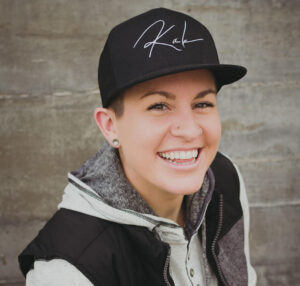Canvas began with a single central problem: that over 20% of the US population suffers from digestive health issues. It tackled the problem with an ingredient that promotes planetary health: upcycled spent grain from beer brewing.

The result is a line of fiber and protein shakes. Canvas shakes are 100% dairy and soy free, and they’re made from premium plant ingredients like coconut, cashew, and spices—plus tons of spent barley grain that would otherwise go to waste.
To learn more about the Canvas story, Bard MBA student Alexander Lykins spoke with company Co-Founder Sarah Pool. Pool is the former President and CEO of Pacific Superfood Snacks, and a former Global Director, Exploration Key Initiative of ZX Initiatives, the venture capital team of AB InBev.
Lykins, who himself is passionate about home brewing, is the Co-Founder and CEO of SustainaBrew Consultancy, which provides customized solutions for the craft beverage industry to leverage value through sustainable innovation.
He and Pool talked about Canvas’s sustainability philosophy, her experience with nutrition as a student athlete, and how the company plans to scale its supply chain.
The following Q&A is an edited excerpt from the Bard MBA’s June 7th The Impact Report podcast. The Impact Report brings together students and faculty in Bard’s MBA in Sustainability program with leaders in business, sustainability and social entrepreneurship.
Reprinted from GreenBiz.
LYKINS: AFTER YOUR SUCCESSFUL RUN WITH PACIFIC SUPERFOOD SNACKS, WHAT LED YOU TO FOCUS YOUR ATTENTION ON UPCYCLING SPENT GRAIN?
At Pacific Superfood Snacks, we were focused on providing people with healthy snacks. In a world where most packaged items are filled with additives, we wanted people to have access to things that were super healthy.
Upcycling spent grain was an entirely new level in terms of that objective. Not only did it provide people with incredible nutrition, but it allowed us to help create a more sustainable food system by turning a byproduct that was just going to waste into good.
The mission with Canvas is two-fold in that respect: to absolutely create a world of super-healthy people through functional nutrition, but also to impact our food system in a way that gives people better access and the planet better health as well.
LYKINS: AS AN ENTREPRENEUR IN THE FOOD INDUSTRY, WHAT PROBLEMS THAT NEEDED SOLVING DROVE YOU TO THE SPACE?
I was an athlete in college, and we had access to different sports performance foods all the time. When I left college, I was still competing in different sporting events—marathons, triathlons and whatnot. I was really focused on getting my nutrition dialed in and elevating my performance to the next level.
But I realized that the food I was eating wasn’t actually fueling my body in the best way—again, because there were ingredients in the food that made me question why they were there. That was an eye opening experience.
I also realized that, if I was training so hard and trying to be healthy, what about the day-to-day person who’s working and parenting and can’t really dial that in the way I could? How is that impacting their health overall?
Obesity rates are rising, and we’ve lost touch with where our food comes from. I believe that food has an unbelievable way of bringing people together and healing our bodies. That’s really what drives me: getting people access to really good food.
LYKINS: UPCYCLING SPENT GRAIN IS A CHALLENGE. IS THE TECHNOLOGY YOU’RE USING AT CANVAS PROPRIETARY?
As a small startup, we knew we needed quite a bit of funding in order to solve the technology piece. We also knew we needed the right partner to do it, so we partnered with ZX Ventures and AB InBev to help us figure that piece out. They’ve become a major advocate and invested heavily in making that happen.
LYKINS: IS IT DIFFICULT TO SECURE A STABLE SUPPLY CHAIN FOR YOUR INGREDIENTS, AND HOW DO YOU PLAN TO MAINTAIN THE SUPPLY CHAIN AS YOU SCALE?
That’s always the trickiest part. We put a lot of time and effort into each and every ingredient that we source, making sure that we’re conscious of where it comes from, the distance to our manufacturing facilities, etc. It’s something that as you scale becomes even more complex.
We have really high standards internally, so we’re conscious of what scaling looks like in terms of quality and our commitment to social good as well as creating a more sustainable food system. We have a small, simple ingredient list and we have great suppliers, so we’re tackling scaling up one step at a time.